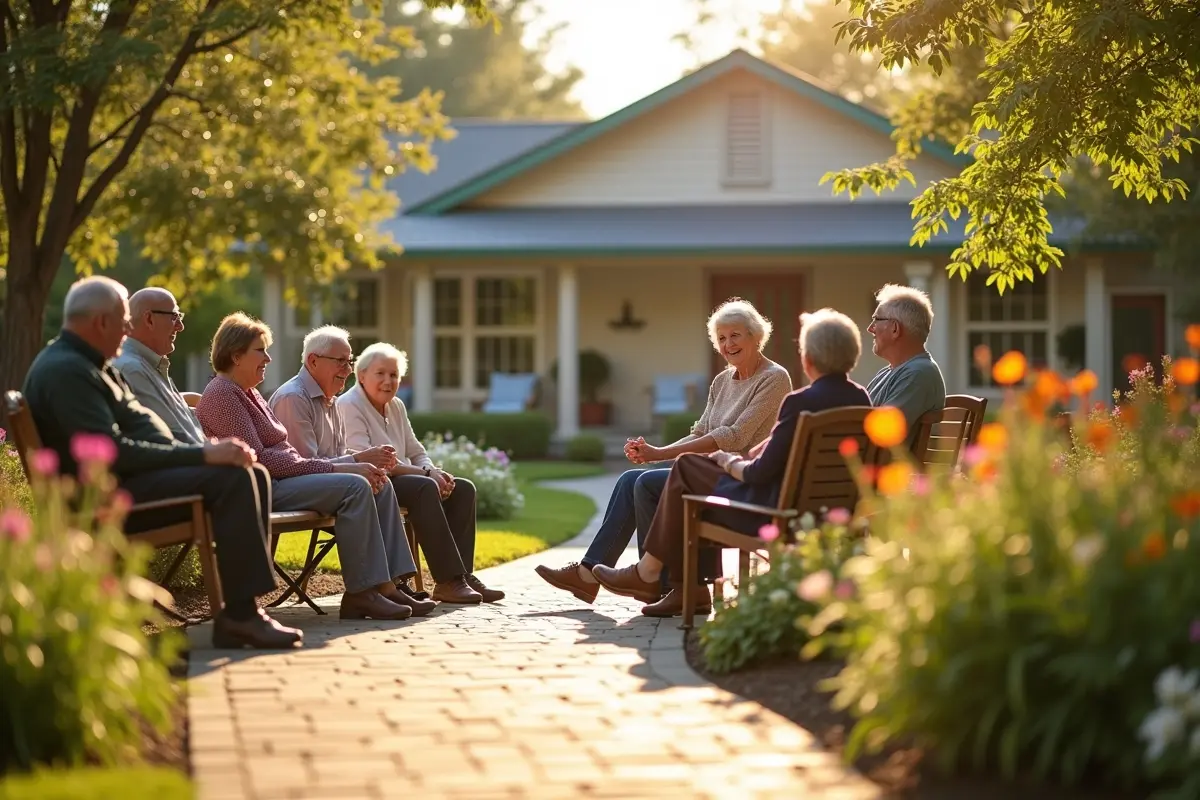Staying Connected: Social Wellness and Friendships in Senior Communities
For senior, forming and maintaining meaningful relationships is central to both health and happiness. The sense of belonging found in dynamic, engaging communities doesn’t just feel good—it improves mental, emotional, and physical health, and helps seniors thrive in everyday life.
Whether it’s sharing stories, celebrating traditions, or exploring new activities together, prioritizing social wellness is vital for older adults. Exploring options for Alzheimer and dementia care in Rockland County can further support seniors who need personalized care, ensuring their connections and well-being are maintained within supportive community environments.
Staying connected goes beyond preventing loneliness—regular social interaction has been shown to boost memory, elevate mood, and even lower the risk of chronic illness.
Seniors with robust social networks consistently report higher quality of life, increased motivation to stay active, and heightened resilience in the face of life’s challenges. This underscores the importance of building and sustaining friendships within senior communities, which often provide the ideal environment for such bonds to flourish.
Importance of Social Connections in Senior Communities
Fostering close relationships in later life provides seniors with a vital support system. Emotional bonds with friends, family, and community members offer comfort during difficult times, motivation when tackling new challenges, and shared joy during moments of celebration.
Research published by The New York Times highlighted that seniors with varied social ties significantly reduced their risk of mental health decline, underscoring the power of companionship as a pillar of healthy aging.
Additionally, robust social circles help seniors maintain their physical health. Regular contact with others results in fewer doctor visits, lower rates of hospitalization, and improved treatment adherence. Seniors who engage with peers also report feeling more energized, optimistic, and confident in maintaining their independence, making social connections a critical aspect of holistic health.
Health Benefits of Social Engagement
- Reduced Stress Levels: Meaningful conversations and laughter with peers have shown stress-relieving effects, helping lower the risk of high blood pressure and heart disease. According to AARP, social activity directly translates into better cardiovascular health for older adults.
- Enhanced Mental Health: Social engagement combats feelings of depression and anxiety, and interacting regularly with others helps keep spirits high and minds engaged.
- Improved Cognitive Function: Seniors who regularly participate in group discussions and activities tend to maintain sharper cognitive abilities, with some studies indicating a lower risk of dementia and memory loss.
Activities to Foster Friendships
The community designers thoughtfully design senior communities to encourage connection and friendship. They offer an array of activities tailored to diverse interests and needs, making it easier for residents to meet, bond, and find common ground.
- Group Exercise Classes: Whether through yoga, chair aerobics, or walking clubs, shared fitness activities promote physical health while providing opportunities for enjoyable social interaction.
- Arts and Crafts Workshops: Participating in creative pursuits, such as painting, knitting, or pottery, helps seniors express themselves and share experiences in a relaxed, supportive environment.
- Book Clubs and Discussion Groups: Reading and discussing stories or current events stimulates intellectual engagement and provides a forum for residents to share perspectives and build rapport.
Overcoming Barriers to Socialization in Senior Communities
Despite the clear benefits, some seniors face challenges such as limited mobility, health conditions, or a lack of accessible transportation. Addressing these barriers is crucial for preventing isolation and promoting ongoing engagement.
- Utilize Technology: Software like video calling platforms, social media groups, or even virtual reality (VR) experiences can bring a whole world of social opportunity to those who may struggle to leave their residences. Recent research suggests VR is particularly effective at fostering community for seniors with mobility issues.
- Community Transportation Services: Many senior communities offer accessible shuttle services or carpool groups, allowing residents to attend events, visit nearby attractions, or connect with friends off-site.
Role of Senior Communities in Promoting Social Wellness
Senior living communities are uniquely positioned to help residents stay socially active:
- Organizing Regular Social Events: Planned activities, such as game nights, themed dinners, or holiday parties, provide easy and regular opportunities for residents to connect and foster lasting friendships.
- Providing common areas, such as comfortable lounges, landscaped gardens, and inviting dining spaces, all create natural gathering spots where spontaneous conversation and camaraderie can blossom.
- Encouraging Volunteerism: Opportunities to serve within the community or in the surrounding area provide purpose, foster a sense of belonging, and introduce residents to new friends who share similar values.
Conclusion
Ensuring robust social connections in senior living communities is crucial to a happy and healthy life. Through friendships, active engagement, and supportive environments, seniors can enjoy better health, a sense of fulfillment, and true belonging.
By participating in diverse activities and leveraging modern connectivity solutions, older adults can continue to expand their social circles and enjoy all the benefits that come with them. Investing in social wellness at every stage of life is one of the most rewarding choices seniors—and those who care for them—can make.

